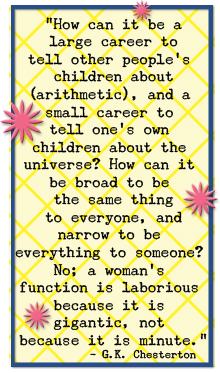Jenn is hosting a link-up of other bloggers studying Sacred Marriage by Gary Thomas. If you’d like to see what they have to say, check it out. If you want to read my previous chapter reviews, go here.
Chapter 8: Embracing Difficulty in Order to Build Character
Chapter 8 continues the theme of perseverance as introduced in Chapter 7. But with a little bit of a different angle. Mainly that our natural tendency in relationships is to avoid conflict. However, conflict is the very thing that causes us to grow as a person, as a couple, and builds faith and character over the long haul of life. If things are easy, they’re not usually as meaningful as something we had to struggle for. Of course, that doesn’t make it fun.
I particularly enjoyed the illustration Thomas used of Charles and Anne Lindbergh. When she married Charles, Anne was unaware that for the rest of her life, everywhere she went, everything she did or said, would be an open book. (There was paparazzi even then!)
Anne was a private person who enjoyed writing, especially about her thoughts and feelings. She couldn’t even write letters to her sister about Charles without using a code name and/or words because they were afraid the letters might be stolen and used in the media. In order to have a private picnic lunch, Charles would have to fly them to some remote location where nosy reporters couldn’t follow. (Not everyone had a plane in those days. Imagine that!) And the greatest price came when their 18-month old child was abducted, held for ransom, and killed.
Their marriage was not easy, either. Even without the stress of the public eye, Charles was not the easiest person to get along with. Yet neither of them gave up. And undoubtedly, there was a lot of work that took place to maintain the relationship.
Thomas asks if Anne knew all of those things were to take place, would she have still married Charles. Maybe, maybe not. But that’s not really the point. Nobody knows what lies ahead of them when they get married. There’s good and there’s bad. Thomas points out that’s probably why wedding vows include “richer or poorer, sickness and health” and “until death do us part.” Because human nature is sometimes to quit, change, or run when things get hard. As Christians who make those vows to each other and a holy God, we believe that quitting isn’t an option.
Early on, Anne had written in a letter to a friend, “…if you write me and wish me conventional happiness I will never forgive you. Don’t wish me happiness – I don’t expect to be happy, but it’s gotten beyond that, somehow. Wish me courage and strength and a sense of humor – I will need them all.”
A profound statement from a young woman who had no idea what trials life was to bring. Yet, it’s not untrue. We always think that a “good marriage” is a “happy” one. But as we’re learning, marriage isn’t about “happiness” as we know it.
That’s not to say that makes things any easier. Because it doesn’t. But if you know there’s no quitting, maybe you don’t allow the little things to get big. And when the big things come, you’re more suited to deal with them. And when we realize that everything isn’t about our personal “happiness” but about holiness, it gives us the proper perspective.



















No comments:
Post a Comment